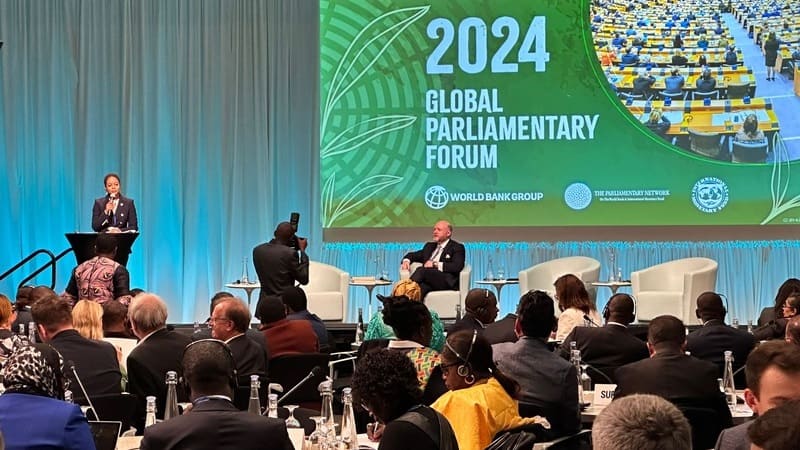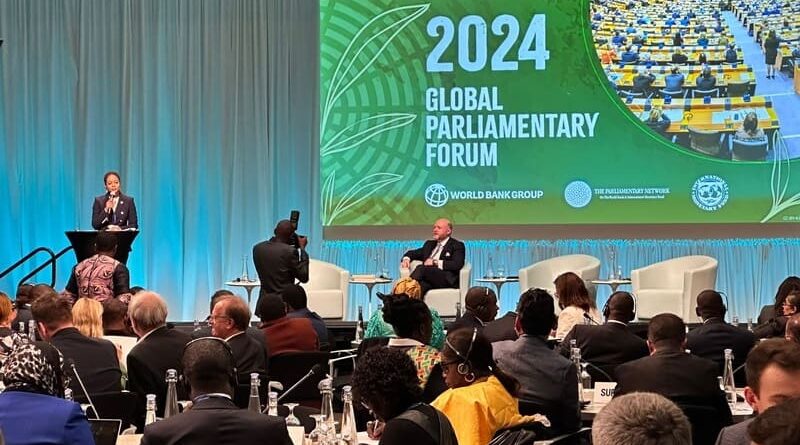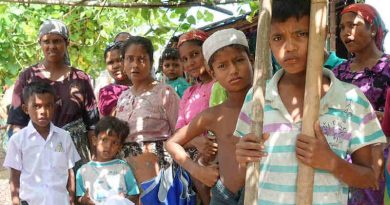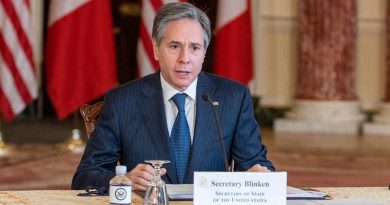Women Parliamentarians Council Formed at the Global Parliamentary Forum

Women Parliamentarians Council Formed at the Global Parliamentary Forum
Established earlier this year by the IMF and World Bank, the Council aims to address the gendered impacts of economic policies and ensure equitable outcomes for women and girls.
A group of UN experts* commended the International Monetary Fund (IMF), World Bank, and women parliamentarians for establishing the Women Parliamentarians Council at the Global Parliamentary Forum and congratulated the newly elected chair of the Forum, Sahar Albazar.
“The Women Parliamentarians Council provides an important platform to advance the role of women’s leadership and meaningful participation in governance and ensure gender responsive approaches, including implementation of commitments to women’s human rights, that are central to all levels of economic decision-making,” said the UN experts.
Established earlier this year by the IMF and World Bank, the Council aims to address the gendered impacts of economic policies and ensure equitable outcomes for women and girls.
“This significant step empowers women legislators to develop and lead institutional changes that eliminate discriminatory legal barriers faced by women in many countries, promote gender responsive budgeting, advance oversight and accountability, and promote equality through their leadership and diplomacy, moving towards an economy prioritizing care and well-being, rather than focused merely on economic growth for the few,” the experts said.
They previously called on the IMF to consider in their Strategy Toward Mainstreaming Gender the challenges faced by women and exacerbated by the Covid-19 pandemic, gender equality setbacks, debt crises, and climate change.
In May 2024, the experts met with the IMF to discuss the importance of gender-disaggregated data and advocate for an intersectional approach which takes into account factors beyond gender, such as migration status and rural versus urban demographics, from a human rights perspective.
In a statement tweeted on August 16, the experts said they remain ready to collaborate with the IMF, the World Bank, and the Women Parliamentarians Council to further these objectives, offering their expertise and support to strengthen gender-responsive economic strategies.
*The experts: Ms Attiya Waris, Independent Expert on the effects of foreign debt and other related international financial obligations of States on the full enjoyment of all human rights, particularly economic, social and cultural rights; Olivier De Schutter, Special Rapporteur on extreme poverty and human rights; Laura Nyirinkindi (Chair), Claudia Flores (Vice-Chair), Dorothy Estrada Tanck, Ivana Krstić, and Haina Lu, Working Group on discrimination against women and girls.
The Special Rapporteurs, Independent Experts and Working Groups are part of what is known as the Special Procedures of the UN Human Rights Council.
Courtesy: UN Human Rights Office
💛 Support Independent Journalism
If you find RMN News useful, please consider supporting us.




